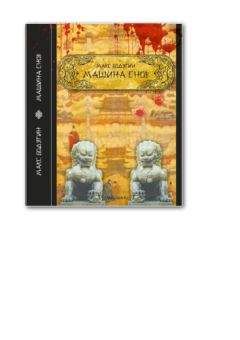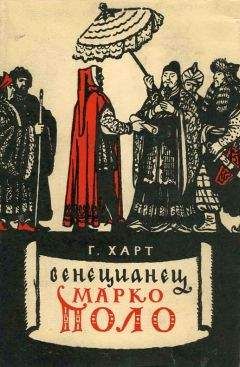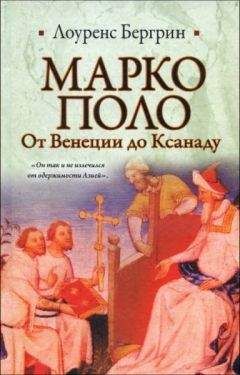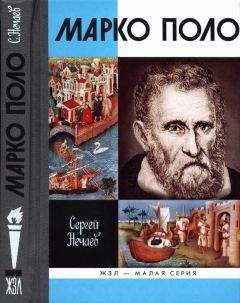Пауло Коэльо - The Alchemist
All around him was the market, with people coming and going, shouting and buying, and the aroma of strange foods… but nowhere could he find his new companion.
The boy wanted to believe that his friend had simply become separated from him by accident. He decided to stay right there and await his return. As he waited, a priest climbed to the top of a nearby tower and began his chant; everyone in the market fell to their knees, touched their foreheads to the ground, and took up the chant. Then, like a colony of worker ants, they dismantled their stalls and left.
The sun began its departure, as well. The boy watched it through its trajectory for some time, until it was hidden behind the white houses surrounding the plaza. He recalled that when the sun had risen that morning, he was on another continent, still a shepherd with sixty sheep, and looking forward to meeting with a girl. That morning he had known everything that was going to happen to him as he walked through the familiar fields. But now, as the sun began to set, he was in a different country, a stranger in a strange land, where he couldn't even speak the language. He was no longer a shepherd, and he had nothing, not even the money to return and start everything over.
All this happened between sunrise and sunset, the boy thought. He was feeling sorry for himself, and lamenting the fact that his life could have changed so suddenly and so drastically.
He was so ashamed that he wanted to cry. He had never even wept in front of his own sheep. But the marketplace was empty, and he was far from home, so he wept. He wept because God was unfair, and because this was the way God repaid those who believed in their dreams.
When I had my sheep, I was happy, and I made those around me happy. People saw me coming and welcomed me, he thought. But now I'm sad and alone. I'm going to become bitter and distrustful of people because one person betrayed me. I'm going to hate those who have found their treasure because I never found mine. And I'm going to hold on to what little I have, because I'm too insignificant to conquer the world.
He opened his pouch to see what was left of his possessions; maybe there was a bit left of the sandwich he had eaten on the ship. But all he found was the heavy book, his jacket, and the two stones the old man had given him.
As he looked at the stones, he felt relieved for some reason. He had exchanged six sheep for two precious stones that had been taken from a gold breastplate. He could sell the stones and buy a return ticket. But this time I'll be smarter, the boy thought, removing them from the pouch so he could put them in his pocket. This was a port town, and the only truthful thing his friend had told him was that port towns are full of thieves.
Now he understood why the owner of the bar had been so upset: he was trying to tell him not to trust that man. "I'm like everyone else—I see the world in terms of what I would like to see happen, not what actually does."
He ran his fingers slowly over the stones, sensing their temperature and feeling their surfaces. They were his treasure. Just handling them made him feel better. They reminded him of the old man.
"When you want something, all the universe conspires in helping you to achieve it," he had said.
The boy was trying to understand the truth of what the old man had said. There he was in the empty marketplace, without a cent to his name, and with not a sheep to guard through the night. But the stones were proof that he had met with a king—a king who knew of the boy's past.
"They're called Urim and Thummim, and they can help you to read the omens." The boy put the stones back in the pouch and decided to do an experiment. The old man had said to ask very clear questions, and to do that, the boy had to know what he wanted. So, he asked if the old man's blessing was still with him.
He took out one of the stones. It was "yes."
"Am I going to find my treasure?" he asked.
He stuck his hand into the pouch, and felt around for one of the stones. As he did so, both of them pushed through a hole in the pouch and fell to the ground. The boy had never even noticed that there was a hole in his pouch. He knelt down to find Urim and Thummim and put them back in the pouch. But as he saw them lying there on the ground, another phrase came to his mind.
"Learn to recognize omens, and follow them," the old king had said.
An omen. The boy smiled to himself. He picked up the two stones and put them back in his pouch. He didn't consider mending the hole—the stones could fall through any time they wanted. He had learned that there were certain things one shouldn't ask about, so as not to flee from one's own destiny. "I promised that I would make my own decisions," he said to himself.
But the stones had told him that the old man was still with him, and that made him feel more confident. He looked around at the empty plaza again, feeling less desperate than before. This wasn't a strange place; it was a new one.
After all, what he had always wanted was just that: to know new places.
Even if he never got to the Pyramids, he had already traveled farther than any shepherd he knew. Oh, if they only knew how different things are just two hours by ship from where they are, he thought. Although his new world at the moment was just an empty marketplace, he had already seen it when it was teeming with life, and he would never forget it. He remembered the sword. It hurt him a bit to think about it, but he had never seen one like it before. As he mused about these things, he realized that he had to choose between thinking of himself as the poor victim of a thief and as an adventurer in quest of his treasure.
"I'm an adventurer, looking for treasure," he said to himself.
*
He was shaken into wakefulness by someone. He had fallen asleep in the middle of the marketplace, and life in the plaza was about to resume.
Looking around, he sought his sheep, and then realized that he was in a new world. But instead of being saddened, he was happy. He no longer had to seek out food and water for the sheep; he could go in search of his treasure, instead. He had not a cent in his pocket, but he had faith. He had decided, the night before, that he would be as much an adventurer as the ones he had admired in books.
He walked slowly through the market. The merchants were assembling their stalls, and the boy helped a candy seller to do his. The candy seller had a smile on his face: he was happy, aware of what his life was about, and ready to begin a day's work. His smile reminded the boy of the old man—the mysterious old king he had met. "This candy merchant isn't making candy so that later he can travel or marry a shopkeeper's daughter. He's doing it because it's what he wants to do," thought the boy. He realized that he could do the same thing the old man had done—sense whether a person was near to or far from his destiny. Just by looking at them. It's easy, and yet I've never done it before, he thought.
When the stall was assembled, the candy seller offered the boy the first sweet he had made for the day. The boy thanked him, ate it, and went on his way. When he had gone only a short distance, he realized that, while they were erecting the stall, one of them had spoken Arabic and the other Spanish.
And they had understood each other perfectly well.
There must be a language that doesn't depend on words, the boy thought. I've already had that experience with my sheep, and now it's happening with people.
He was learning a lot of new things. Some of them were things that he had already experienced, and weren't really new, but that he had never perceived before. And he hadn't perceived them because he had become accustomed to them. He realized: If I can learn to understand this language without words, I can learn to understand the world.
Relaxed and unhurried, he resolved that he would walk through the narrow streets of Tangier. Only in that way would he be able to read the omens. He knew it would require a lot of patience, but shepherds know all about patience. Once again he saw that, in that strange land, he was applying the same lessons he had learned with his sheep.
"All things are one," the old man had said.
*
The crystal merchant awoke with the day, and felt the same anxiety that he felt every morning. He had been in the same place for thirty years: a shop at the top of a hilly street where few customers passed. Now it was too late to change anything—the only thing he had ever learned to do was to buy and sell crystal glassware. There had been a time when many people knew of his shop: Arab merchants, French and English geologists, German soldiers who were always well-heeled. In those days it had been wonderful to be selling crystal, and he had thought how he would become rich, and have beautiful women at his side as he grew older.
But, as time passed, Tangier had changed. The nearby city of Ceuta had grown faster than Tangier, and business had fallen off. Neighbors moved away, and there remained only a few small shops on the hill. And no one was going to climb the hill just to browse through a few small shops.
But the crystal merchant had no choice. He had lived thirty years of his life buying and selling crystal pieces, and now it was too late to do anything else.
He spent the entire morning observing the infrequent comings and goings in the street. He had done this for years, and knew the schedule of everyone who passed. But, just before lunchtime, a boy stopped in front of the shop. He was dressed normally, but the practiced eyes of the crystal merchant could see that the boy had no money to spend. Nevertheless, the merchant decided to delay his lunch for a few minutes until the boy moved on.
*
A card hanging in the doorway announced that several languages were spoken in the shop. The boy saw a man appear behind the counter.
"I can clean up those glasses in the window, if you want," said the boy. "The way they look now, nobody is going to want to buy them."
The man looked at him without responding.
"In exchange, you could give me something to eat."
The man still said nothing, and the boy sensed that he was going to have to make a decision. In his pouch, he had his jacket—he certainly wasn't going to need it in the desert. Taking the jacket out, he began to clean the glasses. In half an hour, he had cleaned all the glasses in the window, and, as he was doing so, two customers had entered the shop and bought some crystal.
When he had completed the cleaning, he asked the man for something to eat. "Let's go and have some lunch," said the crystal merchant.
He put a sign on the door, and they went to a small caf?nearby. As they sat down at the only table in the place, the crystal merchant laughed.
"You didn't have to do any cleaning," he said. "The Koran requires me to feed a hungry person."
"Well then, why did you let me do it?" the boy asked.
"Because the crystal was dirty. And both you and I needed to cleanse our minds of negative thoughts."
When they had eaten, the merchant turned to the boy and said, "I'd like you to work in my shop. Two customers came in today while you were working, and that's a good omen."
People talk a lot about omens, thought the shepherd. But they really don't know what they're saying. Just as I hadn't realized that for so many years I had been speaking a language without words to my sheep.
"Do you want to go to work for me?" the merchant asked.
"I can work for the rest of today," the boy answered. "I'll work all night, until dawn, and I'll clean every piece of crystal in your shop. In return, I need money to get to Egypt tomorrow."
The merchant laughed. "Even if you cleaned my crystal for an entire year… even if you earned a good commission selling every piece, you would still have to borrow money to get to Egypt. There are thousands of kilometers of desert between here and there."
There was a moment of silence so profound that it seemed the city was asleep. No sound from the bazaars, no arguments among the merchants, no men climbing to the towers to chant. No hope, no adventure, no old kings or destinies, no treasure, and no Pyramids. It was as if the world had fallen silent because the boy's soul had. He sat there, staring blankly through the door of the caf? wishing that he had died, and that everything would end forever at that moment.
The merchant looked anxiously at the boy. All the joy he had seen that morning had suddenly disappeared.
"I can give you the money you need to get back to your country, my son," said the crystal merchant.
The boy said nothing. He got up, adjusted his clothing, and picked up his pouch.
"I'll work for you," he said.
And after another long silence, he added, "I need money to buy some sheep."
PART TWO
The boy had been working for the crystal merchant for almost a month, and he could see that it wasn't exactly the kind of job that would make him happy. The merchant spent the entire day mumbling behind the counter, telling the boy to be careful with the pieces and not to break anything.
But he stayed with the job because the merchant, although he was an old grouch, treated him fairly; the boy received a good commission for each piece he sold, and had already been able to put some money aside. That morning he had done some calculating: if he continued to work every day as he had been, he would need a whole year to be able to buy some sheep.
"I'd like to build a display case for the crystal," the boy said to the merchant. "We could place it outside, and attract those people who pass at the bottom of the hill."
"I've never had one before," the merchant answered. "People will pass by and bump into it, and pieces will be broken."
"Well, when I took my sheep through the fields some of them might have died if we had come upon a snake. But that's the way life is with sheep and with shepherds."
The merchant turned to a customer who wanted three crystal glasses. He was selling better than ever… as if time had turned back to the old days when the street had been one of Tangier's major attractions.
"Business has really improved," he said to the boy, after the customer had left. "I'm doing much better, and soon you'll be able to return to your sheep. Why ask more out of life?"
"Because we have to respond to omens," the boy said, almost without meaning to; then he regretted what he had said, because the merchant had never met the king.
"It's called the principle of favorability, beginner's luck. Because life wants you to achieve your destiny," the old king had said.
But the merchant understood what the boy had said. The boy's very presence in the shop was an omen, and, as time passed and money was pouring into the cash drawer, he had no regrets about having hired the boy. The boy was being paid more money than he deserved, because the merchant, thinking that sales wouldn't amount to much, had offered the boy a high commission rate. He had assumed he would soon return to his sheep.
"Why did you want to get to the Pyramids?" he asked, to get away from the business of the display.
"Because I've always heard about them," the boy answered, saying nothing about his dream. The treasure was now nothing but a painful memory, and he tried to avoid thinking about it.
"I don't know anyone around here who would want to cross the desert just to see the Pyramids," said the merchant. "They're just a pile of stones. You could build one in your backyard."




